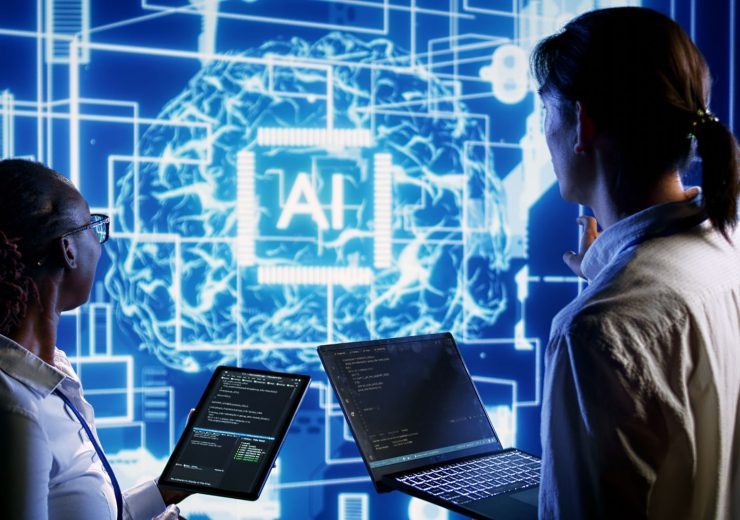The Dark Side of AI: Ethical Dilemmas We Can’t Ignore
Artificial Intelligence (AI) is transforming the world in ways that were once only imagined in science fiction. From self-driving cars to personalized recommendations, AI promises to revolutionize virtually every aspect of our lives. However, as AI continues to evolve, so too does the complexity of the ethical dilemmas it presents. These issues are no longer hypothetical concerns for academics and ethicists but real-world challenges that affect individuals, businesses, and governments alike. While AI brings a host of benefits, including increased efficiency, personalized services, and groundbreaking advancements in medicine and technology, its rapid advancement also raises significant ethical concerns. From bias in algorithms to the potential for mass surveillance, the dark side of AI is something we can no longer afford to ignore. In this article, we will explore the various ethical dilemmas associated with AI, the implications of these issues, and the potential solutions to mitigate their harmful effects.
1. The Problem of Bias in AI
One of the most well-documented ethical concerns about AI is the issue of bias. AI systems are often trained on large datasets, and these datasets can carry inherent biases. If the data reflects historical inequalities or prejudices, the AI system will learn and perpetuate these biases. This can result in discriminatory practices, such as racial profiling by facial recognition systems or biased hiring algorithms that disadvantage women or minorities. For example, in 2018, a study found that commercial facial recognition software was significantly less accurate in identifying darker-skinned individuals, particularly women. This is because the training data predominantly consisted of images of lighter-skinned people, highlighting a major flaw in AI’s ability to fairly and accurately assess all individuals. The ethical dilemma here is clear: If AI systems are biased, they can perpetuate existing inequalities and reinforce harmful stereotypes, potentially exacerbating social injustices. The challenge lies in identifying and addressing these biases before they cause significant harm.
2. Privacy and Surveillance
AI has given rise to new technologies that enable mass surveillance, and this poses serious ethical challenges. From facial recognition to data mining and location tracking, AI-powered surveillance systems can infringe on individuals’ right to privacy. In many cases, people are unaware that they are being monitored, and the data collected can be used in ways that they never consented to. Governments and corporations use AI for surveillance to improve security or for targeted marketing, but the line between safety and privacy invasion is often blurred. For instance, facial recognition systems in public spaces, such as airports and shopping malls, can track people’s movements without their knowledge. While this might help authorities prevent crime, it also raises questions about the erosion of privacy and the potential for authoritarian misuse. The ethical dilemma of AI surveillance is how to balance the benefits of security and convenience with the fundamental right to privacy. As AI becomes more pervasive, the risks associated with surveillance will continue to grow, requiring careful regulation and oversight to prevent abuse.
3. Autonomy and Accountability
As AI systems become more sophisticated, they are increasingly making decisions that were traditionally made by humans. In some cases, these decisions can have life-or-death consequences. For example, AI algorithms are being used in autonomous vehicles to make real-time decisions about how to respond to emergencies, and AI is also being used in healthcare to diagnose medical conditions and recommend treatments. When AI systems make these types of decisions, who is accountable if something goes wrong? If an autonomous vehicle causes an accident or an AI-driven medical diagnosis leads to an incorrect treatment, who is responsible? The manufacturer? The developer? The AI itself? The lack of clear accountability for AI decisions raises significant ethical concerns. As AI systems gain more autonomy, it becomes increasingly difficult to assign responsibility for their actions. This challenge requires new frameworks for accountability, especially in areas where AI can cause harm or injury.
4. Job Displacement and Economic Inequality
AI’s ability to automate tasks that were once performed by humans has raised concerns about widespread job displacement. As machines become more capable of handling complex tasks, many fear that millions of jobs could be lost, particularly in industries like manufacturing, transportation, and customer service. The ethical dilemma here is whether we are prepared to address the economic consequences of widespread automation. While AI has the potential to increase productivity and create new types of jobs, it is unlikely to do so in a way that benefits everyone equally. Those who are displaced by AI may not have the skills or resources to transition into new roles, leading to economic inequality and social unrest. Furthermore, as AI technologies are largely developed by a small number of wealthy companies, there is a risk that the benefits of AI could be concentrated in the hands of a few, exacerbating the wealth gap. Addressing this issue will require thoughtful policies and investments in education, training, and social safety nets to ensure that workers who are displaced by AI can adapt to the changing economy.
5. The Use of AI in Warfare
One of the most troubling ethical dilemmas related to AI is its use in warfare. Autonomous weapons systems, sometimes referred to as “killer robots,” are AI-powered machines that can identify and engage targets without human intervention. While these systems could potentially reduce the number of casualties in conflict by making more precise strikes, they also raise serious concerns about accountability, control, and the potential for misuse. The ethical dilemma of AI in warfare revolves around the question of whether it is morally acceptable to delegate life-and-death decisions to machines. Should AI be given the power to decide when and how to use lethal force? If something goes wrong — if an autonomous weapon targets the wrong individual or causes collateral damage — who is responsible? The use of AI in warfare also raises the specter of an arms race, where countries compete to develop increasingly advanced autonomous weapons. This could destabilize global security and lead to unintended escalations in conflict. The ethical debate surrounding AI in warfare is complex and requires international cooperation to establish ethical guidelines and regulations to govern its use.
6. Manipulation and Misinformation
AI has also been used to create and spread misinformation, further complicating the ethical landscape. AI-generated deepfakes, for instance, can create highly convincing fake videos of people saying things they never actually said. These videos can be used to manipulate public opinion, influence elections, or damage reputations. The ethical dilemma here is how to prevent AI from being used as a tool for deception and manipulation. While AI technologies like deep learning are incredibly powerful, they also have the potential to be misused in ways that can harm individuals, communities, and societies as a whole. To combat this problem, it is essential to develop technologies that can detect and expose deepfakes and other forms of AI-generated misinformation. Additionally, there must be a greater focus on media literacy to help individuals recognize and resist the influence of AI-driven manipulation.
7. Ethical AI Development
At the heart of many of the ethical dilemmas associated with AI is the question of how to develop AI in a responsible and ethical manner. While many companies and organizations are working to create ethical guidelines for AI development, there is still a lack of consensus on what constitutes “ethical AI.” The ethical dilemma in AI development is ensuring that AI systems are designed and implemented with fairness, transparency, and accountability in mind. This means creating AI systems that are free from bias, respect privacy, and are used for the betterment of society, not to further entrench power imbalances or exploit vulnerable populations. As AI continues to evolve, it is crucial that developers, policymakers, and society at large work together to create ethical frameworks that guide AI development. This will require ongoing dialogue, transparency, and collaboration to ensure that AI is used responsibly and equitably.
Conclusion: Navigating the Dark Side of AI
Artificial Intelligence holds the potential to change the world in remarkable ways. However, as its capabilities grow, so too do the ethical challenges that come with it. From bias and surveillance to job displacement and warfare, the dark side of AI is an issue that cannot be ignored. The ethical dilemmas associated with AI are complex and multifaceted, but they are not insurmountable. By fostering responsible development, encouraging transparency, and holding companies and governments accountable, we can ensure that AI serves the common good and minimizes harm. As we navigate this new technological frontier, it is essential that we prioritize ethics and human dignity, ensuring that AI enhances rather than undermines our society.
TGI is a US-based software house specializing in delivering custom software solutions tailored to your business needs.
From AI and ML-driven innovations to comprehensive web and mobile app development, our expertise ensures your business stays ahead of the curve. Contact us today to learn how we can transform your ideas into reality.
Related Posts
Unveiling the Financial Frontier: How ML Algorithms Are Transforming Fraud Detection
Introduction: In the fast-paced world of finance, staying ahead of fraudulent...
Breaking Down the Buzz: What Is Artificial Intelligence and Why Should You Care?
Breaking Down the Buzz: What Is Artificial Intelligence and Why...


